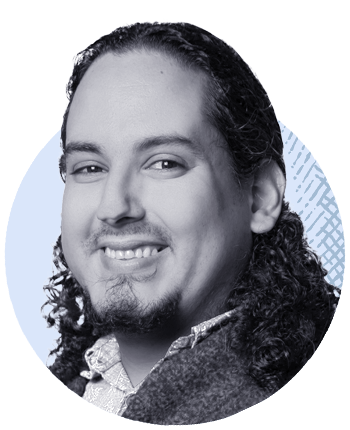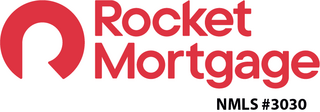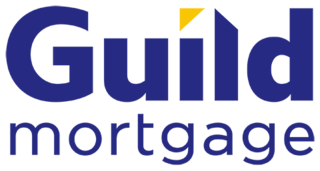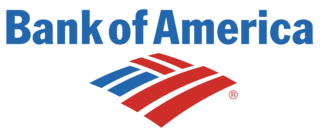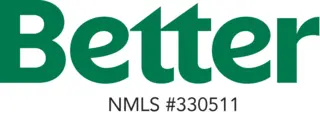8 Best Mortgage Lenders of February 2026
For many people, buying a home is the most significant investment they’ll ever make, so it’s an undertaking that demands careful planning and research. In a housing market that features high mortgage rates and home prices, comparing loan products from several different lenders can help you find the best one for your needs.
There are many lenders to choose from, including brick-and-mortar banks and credit unions, online-only and non-bank lenders, and mortgage brokers that offer loans from multiple institutions. Money has reviewed the country's largest mortgage providers across a wide range of loan types and evaluated their offerings in order to rank them. As you learn about mortgages and shop for a lender, this guide to the best mortgage lenders of 2026 is a good place to start.
What to know about mortgage lenders
- There are wide variations between lenders when it comes to loan products, terms and interest rates.
- Each lender will have its own qualification and documentation requirements. Make sure you understand what each one uses in its evaluation and underwriting process.
- Remember, you can negotiate better rates and terms, so don't hesitate to reject an initial lender offer if it doesn't meet your needs.
How we chose our top picks
Money reviewed more than 30 of the largest financial institutions and their products, using publicly available data as well as interviews with lender representatives to ensure accuracy. We then evaluated each lender’s available rates, loan terms, credit score requirements, geographic availability and customer satisfaction metrics. Our top picks received the highest combined score among the lenders we reviewed.
Read our full methodology for more details on our selection process.
Our top picks for the best mortgage lenders of February 2026
Lenders are listed in order of loan origination volume
- Rocket Mortgage: Best overall lender
- Guild Mortgage: Best lender for self-employed borrowers
- Bank of America: Best national bank lender
- loanDepot: Best in-person VA lender
- Pennymac: Best online VA lender
- Better Mortgage: Best online lender
- PenFed: Best credit union lender
- Northpointe Bank: Best lender for bad credit
- Easy online application and document uploading
- Multiple borrower assistance programs
- Highly rated customer service experience
- Rates not as low as some competitors
- Credit score requirements higher than some competitors
- Types of loans:
- Conventional, jumbo, FHA, VA
- Availability:
- 50 states, Washington, D.C.
- Minimum down payment:
- 1% for certain programs (0% for VA loans)
- Credit score requirement:
- 620
Why we chose it: Rocket Mortgage offers the smoothest online application process among the companies we considered, making it easy to upload all the necessary documentation. Plus, Rocket offers several lending programs to make homebuying more affordable, including rate buydowns. Renters can receive a lender credit toward closing costs equal to 10% of their total annual rent, up to $5,000.
- Wide variety of alternative income loan options
- Flexible loan terms
- Competitive rates
- No online application available
- Types of loans:
- Conventional, ARM, FHA, VA, USDA
- Availability:
- 49 states, Washington, D.C.
- Minimum down payment:
- Varies by loan program
- Credit score requirement:
- 620 (conventional loan); varies by loan program
Why we chose it: Guild Mortgage offers a large variety of loan options for borrowers who don't qualify for conventional loans or who rely on non-traditional sources of income, such as the self-employed and gig workers. Its loans are customizable to meet your needs and offer greater flexibility for borrowers with more complicated earnings histories or credit profiles. Note that Guild’s products aren’t available in New York State.
- Wide range of mortgage products available
- Perks for members of its loyalty program
- High customer service ratings
- Fee information not available online
- No physical branches in 11 states
- Types of loans:
- Conventional, ARM, jumbo, FHA, VA
- Availability:
- 50 states, Washington, D.C.
- Minimum down payment:
- 3%
- Credit score requirement:
- 620
Why we chose it: Bank of America offers nearly every mortgage product widely available in the mortgage market. It consistently ranks above average in J.D. Power’s U.S. Mortgage Origination Satisfaction Study, coming in third in 2024. The company offers competitive rates; eligible members of its loyalty program may qualify for an origination or interest rate reduction.
- Competitive interest rates
- Lots of loan and term options
- Serves all 50 states
- Low credit score requirements
- 1 regulatory action in last five years
- No advertised interest rates
- Types of loans:
- Conventional, ARM, FHA, VA
- Availability:
- 50 states, Washington, D.C.
- Minimum down payment:
- 0%
- Credit score requirement:
- 520
Why we chose it: LoanDepot is our top lender for VA loans due to its variety of loan products and term options. Over the course of our review period, it consistently offered low interest rates, and its minimum credit score requirement of 520 was the lowest among all the VA lenders we reviewed. In addition, first-time homebuyers can get up to $4,500 cash back when taking out a VA loan.
- Competitive interest rates
- Serves all 50 states
- Low credit score requirements for purchase loans
- Has advertised rates to help you gauge costs
- No physical locations
- Limited loan and term options
- Types of loans:
- Conventional, jumbo, ARM, FHA, VA
- Availability:
- 50 states, Washington, D.C.
- Minimum down payment:
- 0%
- Credit score requirement:
- 580
Why we chose it: PennyMac offers a quick, easy application process and competitive interest rates on its purchase and refinance loans. It offers loan terms of 15, 20, and 30 years, and its minimum credit score of 580 is lower than that of most VA lenders we reviewed. Pennymac scores above average in the J.D. Power 2025 Mortgage Servicer Satisfaction Study.
- Fast online application process
- Minimal fees
- Low credit score requirement
- Less loan variety than competitors
- Types of loans:
- Conventional, FHA, VA
- Availability:
- 50 states, Washington, D.C.
- Minimum down payment:
- 3%
- Credit score requirement:
- 580
Why we chose it: Better Mortgage is our choice for the best online lender due to its fast application process, minimal lender fees and low minimum credit score requirement. You can start a loan preapproval in as little as three minutes with no hard credit check. Eligible borrowers can get a commitment letter — a document showing you have passed the initial loan underwriting process — with a conditional loan amount within 24 hours, the fastest among the companies we considered.
- Membership open to everyone
- Competitive interest rates
- Incentives for first-time buyers
- Limited number of physical branches
- Credit score requirements higher than some competitors
- Types of loans:
- Conventional, ARM, jumbo, FHA, VA, USDA
- Availability:
- 50 states, Washington, D.C., Puerto Rico, Guam
- Minimum down payment:
- 3%
- Credit score requirement:
- 620
Why we chose it: PenFed consistently offered the best interest rates among all the institutions we reviewed during our research period. Anyone can join the credit union by opening a savings account with a $5 deposit. PenFed offers a wide variety of mortgage products, including incentives for first-time homebuyers. Its easy membership requirements and low rates make PenFed the best choice for borrowers seeking a credit union.
- Large variety of loan programs for high-risk borrowers
- Low credit score requirement
- Competitive interest rates
- Limited number of physical branches
- Origination fees higher than some competitors
- Types of loans:
- Conventional, jumbo, FHA, VA, USDA
- Availability:
- 50 states, Washington, D.C.
- Minimum down payment:
- 1% for certain programs
- Credit score requirement:
- 580
Northpointe is our choice for the best lender for borrowers with bad credit, offering several options for borrowers with checkered credit histories. One such option is its New Start program, which provides financing to borrowers recovering from a financial setback, such as bankruptcy. This program allows borrowers with credit scores as low as 580 to obtain mortgages of up to $1 million (other lenders that offer conventional mortgages generally require scores of at least 620).
Other mortgage lenders we considered
We evaluated over 30 mortgage lenders as part of our research. Below are lenders that didn't make our top picks list but could be a good fit for your current needs.
Navy Federal Credit Union
Navy Federal specializes in loan programs designed for members of the armed forces. Although its main strength lies in VA loan products, the lender also offers conventional purchase and refinancing options, and its mortgage rates are competitive with other lenders. Membership is limited, however, to active and retired military members and their families, as well as some Department of Defense civilian employees, thereby limiting who can benefit from its loan products.
What you need to know about mortgage lenders
There are several types of mortgage lenders, from traditional brick-and-mortar banks to online lenders to mortgage brokers. Each one has advantages and disadvantages. Evaluating different lending options can result in a lower interest rate and a better overall experience.
If you've taken out a mortgage before, you already have an idea of what to expect and look for. But if you're a first-time homebuyer, going through the mortgage process can seem overwhelming. The following tips can help you find the best lender for your financial needs.
How to choose the right mortgage lender
One of the most important steps in homebuying that many people skip is shopping around for a lender. Mortgage rates vary widely among lenders for several reasons, including differences in fees and origination costs. Comparing loan offers from multiple lenders could save you $1,200 or more per year.
When shopping for a lender, ask about all available loan options and understand the pros and cons of each. Learning about different loan types can help you narrow down which one best suits your financial situation. A reputable lender will take the time to walk you through the ins and outs of each mortgage loan and help you decide on the best course of action.
Once you've determined which loan type works best for you, compare offers from several lenders. Focusing on the following areas can help you find the right fit.
Comparing rates and fees
The mortgage interest rate is one of the most important pieces of information you'll need. It determines your monthly payment and the total interest you'll pay over the life of the loan. The lower the rate you qualify for, the more money you'll save in the long run.
The difference in rate can be as small as half a percentage point. For example, the monthly payment on a 30-year, $400,000 mortgage at 6.2% — approximately the average rate currently on the market — would be about $131 lower than the same loan at 6.7%.
Rates can vary widely among lenders, so don't settle for the first offer you find. According to Freddie Mac research, obtaining one additional lender quote could result in an average savings of $1,500 over the life of the loan. Obtaining five additional quotes increases the average to $3,000.
When comparing loan offers, ensure you're comparing the same type of mortgage, loan terms and amount to get a more accurate estimate.
Interest rate vs. annual percentage rate
When comparing rates, you'll see two separate numbers. One is the base rate the lender will charge, often called the interest rate. This number is determined by your credit score and market conditions. However, it's not the actual rate you'll pay on the loan.
Lenders add fees that can include loan origination and underwriting charges, mortgage points, private mortgage insurance and broker fees, as applicable. The lender will add these fees to your interest rate to calculate the annual percentage rate (APR). This represents the total cost of financing the loan, and it’s the amount you ultimately pay.
If you find a lender offering a lower interest rate but a higher APR than another lender, it indicates they are rolling more fees into the loan cost. When comparing mortgage rates, APRs help you evaluate lenders on an apples-to-apples basis and provide a more accurate estimate of total loan cost.
Fixed vs. variable interest
A fixed interest rate means that the interest rate charged on the loan doesn't change throughout the life of the loan. As a result, your monthly principal and interest payment will remain the same. (Your monthly payment might vary from year to year if your property taxes are paid via an escrow account through your mortgage.)
A variable rate, also known as an adjustable rate, fluctuates at specific intervals (typically every six months or year). Most adjustable-rate mortgages today are commonly called hybrid loans. They have a predetermined number of years at a fixed interest rate, after which the rate will become variable.
Whether and by how much the rate increases or decreases depends on market conditions and the loan terms. (Some might cap how much the rate can increase per adjustment, for instance.) This can result in significant changes to the amount of interest paid over the loan term.
Loan terms
The interest rate can also vary based on the loan term. Most homebuyers choose a 30-year mortgage because monthly payments are typically lower than those of shorter-term loans.
Loans with shorter payback terms, such as 10- or 15-year loans, tend to have lower interest rates. However, a shorter repayment term means higher monthly payments than for a longer loan with the same interest rate. The advantage of short-term loans is that you'll pay less total interest compared to a longer-term loan, and you can build equity in your home more quickly.
Checking preapproval options
Preapproval and prequalification might sound similar, but they’re actually different, and the distinction is important when you’re trying to buy a home.
There was a time when getting prequalified for a loan was enough for you to be competitive in the housing market. Since the pandemic, however, the market has become more competitive, with more all-cash buyers (generally preferred by sellers). In this climate, getting not just prequalified but preapproved for a home loan is recommended.
When you get prequalified, the lender will give you an estimate of how much you could borrow based on the cursory financial information you provide. The actual amount you qualify to borrow could be significantly different once you submit a complete application that is vetted by the lender.
With a preapproval, the lender will review and verify your financial documents and information, including your credit report, before issuing a preapproval letter. This letter is not a guarantee of a loan, but it confirms that the lender has vetted your finances and is willing to lend you up to a specified amount, subject to conditions. This letter is typically valid for 60 to 90 days, although some lenders issue letters that expire after 30 days.
Most lenders provide a preapproval letter free of charge, but some may charge an application or processing fee to cover expenses such as a credit check. Verify with the lenders you're considering whether there are any costs to obtaining preapproval and how long it will last.
Understanding loan costs and conditions
Once you submit a mortgage application, a lender has three days to provide you with an official loan estimate. This document is a standardized form that includes loan details and provides information about the following:
- Loan terms: Includes the loan amount, interest rate and a breakdown of which portion of each monthly payment goes toward the loan principal, interest, mortgage insurance and escrow.
- Loan fees and other costs: Includes the closing costs of the loan, which range between 2% and 6% of the loan amount and include application, origination and underwriting fees, along with mortgage insurance premiums, property taxes, mortgage points and ancillary fees.
- Estimated cash to close: Details the upfront costs needed to close the loan. Items in this section include the down payment, deposits and fees to be paid by the borrower in addition to the closing costs.
- Comparisons: Provides interest rate and payment information you can use to compare with other loan offers.
- Other considerations: Includes information about home appraisals, whether the loan can be taken over by someone else (most can't), late payment penalties, homeowners' insurance requirements, refinancing terms and whether the loan will be serviced by the lender or transferred to another party.
It's important to read this document carefully and understand all the terms, fees and conditions involved in accepting the lender's offer. Because this document is standardized, you can easily compare terms across lenders and determine which lender best suits your needs. Once you choose a loan, you will receive the final closing documents, which should closely match the information provided in the estimate.
Latest news in mortgage lending
Homebuyers got a big boost in January as mortgage rates dropped to their lowest levels in three years.
The decline came after President Donald Trump instructed Fannie Mae and Freddie Mac, the two government-sponsored enterprises that help ensure liquidity in the home lending market, to buy $200 billion dollars in mortgage bonds.
Almost immediately after the announcement, mortgage rates dropped as low as 5.99% in some daily rate surveys, leading to an uptick in mortgage applications as prospective buyers took advantage of the rate drop. Although rates have since climbed back above 6%, they remain below the level seen just a few weeks ago.
These lower rates offer some buyers an opportunity to re-enter the market. In emailed comments to Money, Joel Berner, senior economist at Realtor.com, says that although the rate relief has so far been modest, "improvements to affordability are still meaningful when there are many buyers right on the margin of being able to afford a home purchase.
Looking ahead, mortgage rates are forecast to remain slightly above 6% in 2026, though there is now a greater chance they could move lower. For well-qualified, financially prepared buyers, this year will offer the best borrowing conditions since late 2022.
Mortgage Lenders FAQs
What are the current mortgage rates in 2026?
How much house can I afford?
Is now a good time to buy a house?
How much of a down payment do I need in 2026?
Methodology
Money reviewed more than 30 of the largest financial institutions and their products, using publicly available data and confirming its accuracy through interviews with lender representatives. We then evaluated each one in terms of their sample rates, loan options, customer satisfaction, minimum credit score requirement and accessibility, scoring each lender on a scale of one to five on the following metrics: Credit score (25%), interest rates (25%), reputation/customer satisfaction (20%), loan options (15%) and geographic availability (15%).
- Lenders that accepted lower credit scores received higher marks because they could serve a larger pool of borrowers.
- We sampled interest rates over a one-month period and prioritized lenders that offered consistently lower rates.
- Companies with higher customer satisfaction ratings received higher scores than competitors with lower ratings.
- Lenders offering more loan options received higher scores because they give borrowers a better chance of finding the right product for their needs.
- Companies with a broader service footprint scored higher than those with a more limited reach.
Summary of Money's best mortgage lenders of February 2026
- Rocket Mortgage: Best overall lender
- Guild Mortgage: Best lender for self-employed borrowers
- Bank of America: Best national bank lender
- loanDepot: Best in-person VA lender
- Pennymac: Best online VA lender
- Better Mortgage: Best online lender
- PenFed: Best credit union lender
- Northpointe Bank: Best lender for bad credit
More from Money:
5 Best Mortgage Refinance Companies of 2026

